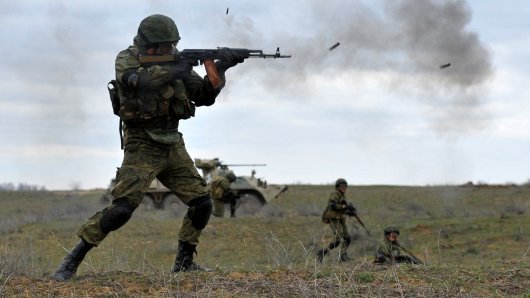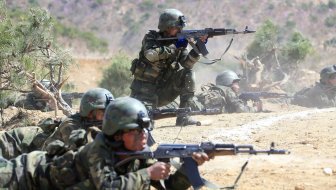Analysts and media are unanimous that Bosnia and Herzegovina is entering the year 2012 in the deepest crisis since the signing of the Dayton peace agreement in 1995 which put an end to the war in the country that began in 1992.
At the end of 2011, the country still has a caretaker government even though general elections were held in October 2010.
Not even after 14 months have six political parties that won the most votes and seats in the state parliament managed to agree on the division on ministerial posts, and the country is still being run by the previous Council of Ministers, elected in 2006, with Nikola Spiric as its chair.
"Considering the current circumstances, we have done more than could be expected," Spiric said earlier this week while commenting on the situation in the country and the government's responsibility for it.
The adoption of any strategic decisions has been practically blocked throughout the previous year due to political conflicts, and the global recession and economic crisis have only additionally aggravated the situation.
Almost all development projects in the country are on hold, according to the central statistics office, the unemployment rate is above 27 percent, the average salary is barely 400 euros, and the average pension allowance amounts to less than 150 euros.
According to World Bank estimates, GDP growth in Bosnia and Herzegovina in 2012 will probably be between zero and one percent, depending on what will happen with the crisis in the euro-zone.
In the current situation, neither the World Bank nor the IMF can help the country much until it adopts a budget for next year, which is uncertain because of political skirmishes.
Political tensions have been running high due to open threats of secession coming from the president of the Serb entity, Milorad Dodik, while in the Croat-Bosniak entity, there is a growing rift between the Croat HDZ BiH and HDZ 1990 parties on one side and the Social Democratic Party (SDP) and the Party of Democratic Action (SDA) on the other. Dodik, the two HDZ parties and the SDP-SDA coalition have completely opposed views on how the future government should look, which makes any agreement between them nearly impossible.
In his last report on the situation in the country to the UN Security Council, the international community's High Representative in Bosnia, Valentin Inzko, openly warned that the situation was unstable. He said the reasons were the failure to form a government and the growing nationalist rhetoric and threats of secession in the Serb entity, as well as proposals for the establishment of a third entity.
Economist Zarko Papic, a member of the government of the last Yugoslav Prime Minister Ante Markovic, earlier this week issued a dramatic warning about the situation in Bosnia. "The European Union is facing dissolution, but Bosnia and Herzegovina is facing a complete collapse," Papic told the local media.
Papic believes that the failure to agree on government formation is just an indicator of the collapse of the existing system. "We are entering a period of uncertainty when everything is possible," he said, suggesting that the current situation in Bosnia reminded one of the situation shortly before the break-up of the former Yugoslavia.
The international community has no intention of intervening in Bosnia at present. At a session held earlier this month, the Steering Board of the Peace Implementation Council only called once again on local politicians to try to agree as soon as possible on the establishment of a new Council of Ministers and on a state budget.
However, the six political parties that are expected to reach agreement have made no mention of a new meeting of their leaders or whether and when talks on government formation could resume.




































